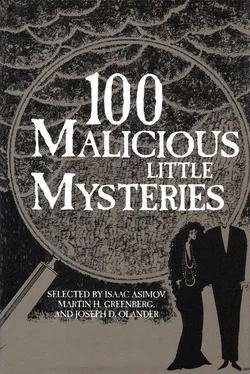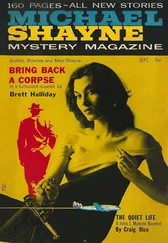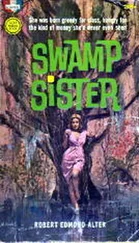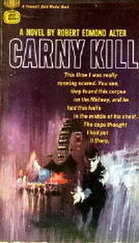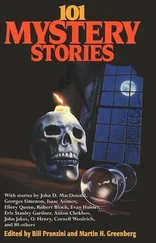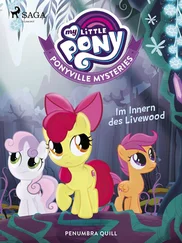Half an hour later she was trundling the old lady up the hill. She settled the chair into its accustomed place and flung herself down on the ground nearby. The view of the well-trimmed campus surrounded by its stone wall seemed to Paula like nothing so much as a neat, orderly trap. She paid even less attention than usual to her mother-in-law’s monotonous prattle, catching only, “You shall have it all one day, and soon.”
The familiar words made Paula ache with restless longing. If only “soon” could be right now. Money, she had always piously maintained, wasn’t important; and yet, when one had nothing else—
With enough money she could pry Howard out of his narrow little life; a year in Paris, then perhaps Rome; maybe they could finally live in Switzerland as so many people were doing. It just might make all the difference. There might still be some hidden spark to be struck in Howard if only he could be freed from the deadening influence of this dismal town and its suffocating college.
A gentle snoring from the wheel chair brought Paula rudely back to reality. Not a chance, she thought bitterly. The famous sixty-fifth birthday was only a week away, and the old woman, sleeping peacefully in the shade, looked fit for another fifteen years at least. Oh, it just wasn’t fair!
Paula yanked her sleep-numbed leg out from under her and extended it sharply. Her foot accidentally struck the wheel of the chair. She gasped as the chair, loosened from its place, rolled forward a few feet and came to a stop precariously near the beginning of the long downward slope.
For a few seconds Paula sat rigid, hardly able to breathe. And through it all, like an idiotically benign counterpoint, the snoring continued unbroken. The old woman apparently slept as wholeheartedly as she ate. Paula relaxed at last, exhausted from fear. What a close call!
And then, insidiously, a second thought crept into her consciousness. How easy it had been. Almost before she realized what was happening, Paula found herself sliding forward along the ground. She stretched her leg out cautiously, and with her foot gave the chair another shove. It moved only a few inches this time and then held, caught by a rut at the very edge.
Again Paula waited, her heart pounding. And again there was no sound except the snoring, and no movement from the woman in the wheel chair.
Paula rose silently. She seemed to have lost all sense of what it was she was trying to do and was filled only with a determination to accomplish it. She grasped the back of the chair with both hands. Gently she eased the front wheels and then the back ones over the obstructing spot. Then with a strong thrust she sent the chair forward.
It started down the grade slowly, then gained momentum. The fat little woman, squeezed in so tightly, didn’t even waken fully enough to cry out. There was scarcely any sound at all till the distant, splintering thud as the chair with its heavy passenger crashed into the solid stone wall...
It was more than three hours later when Howard finally came out of his mother’s room. Paula, sitting in the hall outside, knew by his face that the old woman was dead. The tension in which Paula had spent the intervening hours broke suddenly and she gave way to hysterical sobbing.
“Oh, dear,” murmured Howard, distressed. He came to her quickly and sat beside her. “Paula, you mustn’t... Don’t blame yourself, my dear. It was a dreadful accident, that’s all.” Then, as her sobbing continued unabated, he went on nervously. “Please, dear, try to look at it this way. These last few months have been the happiest Mother has ever known, thanks largely to you. Really, she remarked many times about your great kindness to her.”
Paula buried her face even deeper in her hands to hide the blush that flared up in her cheeks. It was several painful minutes before she could control her sobs enough to mumble, “She didn’t even get to have her birthday party.”
“That’s true,” said Howard with a sad smile. “Poor Mother. That would be her only regret, I think. She had so counted on being able to turn over Father’s money to us.”
Paula lifted her head at this and stared at Howard through a blur of tears, “What do you mean?” she asked finally.
“Why — didn’t Mother explain to you about Father’s will?”
“Not — very clearly,” Paula managed to say. Her mouth felt dry.
“Well,” Howard began, settling comfortably into his classroom manner, “although Father became quite a wealthy man in his lifetime, he always retained a strong Yankee fear of the corrupting influence of money not earned. He felt that Mother spoiled me and that if he left the money to her outright she’d turn it over to me immediately and I’d become a wastrel. And he may have been right, you know. Dear Mother, she found it very hard to deny me anything. At any rate. Father made out a will leaving the money in trust, allowing Mother only a monthly income until she should reach the age of sixty-five.”
“Sixty-five?” Paula echoed stupidly.
“I don’t know why sixty-five exactly. Perhaps he felt that by that time I’d be forty and have acquired the habit of earning my own keep.”
“But—” Paula was struggling to make sense of Howard’s words. “But how could he be sure she’d live to be sixty-five?”
“He couldn’t, of course. And,” he added with a sigh, “as it turned out, she didn’t.”
Paula closed her eyes. She could hardly bring herself to ask it. “What... what happens to the money now?”
“Oh... that.” Howard frowned in an effort to recall the exact wording. “In the event of her death before attaining the age of sixty-five,” he recited with maddening accuracy, “the money automatically goes to the college.” Here he permitted himself a dignified chuckle. “Like so many people with very little formal schooling, Father had the greatest respect for institutions of higher learning.”
Up to this point Howard had fastidiously avoided looking directly at his wife, on the charitable assumption that her initial excessive outburst had been as embarrassing to her as it was to him. As he turned to face her now, he was shocked to see the crushing effect his words had been having on her.
“Oh, my dear Paula,” he hastened to reassure her. “Surely you don’t think I mind about the money? How can I miss something I’ve never had? We lived very frugally even when Father was alive. Why, I have my work, a good wife, our little home — what more could I possibly want? You’ll see, my dear, our life will go on quite as usual. Except that poor Mother is no longer with us, nothing has changed at all.”
Knit One, Purl Two...
by Thomasina Weber
Flo Connelly put her lunch wrappings in the large tote bag beside her camp stool. “You’d think they would have a garbage can here,” she said to her new acquaintance of the morning.
“I don’t think they encourage eating in the courthouse corridors,” replied Mrs. Frisbee.
“Tough. I’ve attended every hearing held in this courthouse, and if you’re not up front when they unlock the doors after lunch, you don’t get a seat.”
“I had no idea so many people attended preliminary hearings,” said Mrs. Frisbee.
“They don’t always. But for one like this, where the sweet innocent broad knocks off her husband, they come to hear the dirt.”
Mrs. Frisbee moved slightly away from the smaller woman. “They don’t know for sure that Delcey Clark killed her husband,” she said.
Flo Connelly laughed as she extracted from her bag a pair of knitting needles with five inches of a blue, unidentifiable something on them. “All you gotta do is look at that wide-eyed baby face and that shiny red hair, and you can see it right off. What would she want with a sick, crabby old husband other than his money?”
Читать дальше
